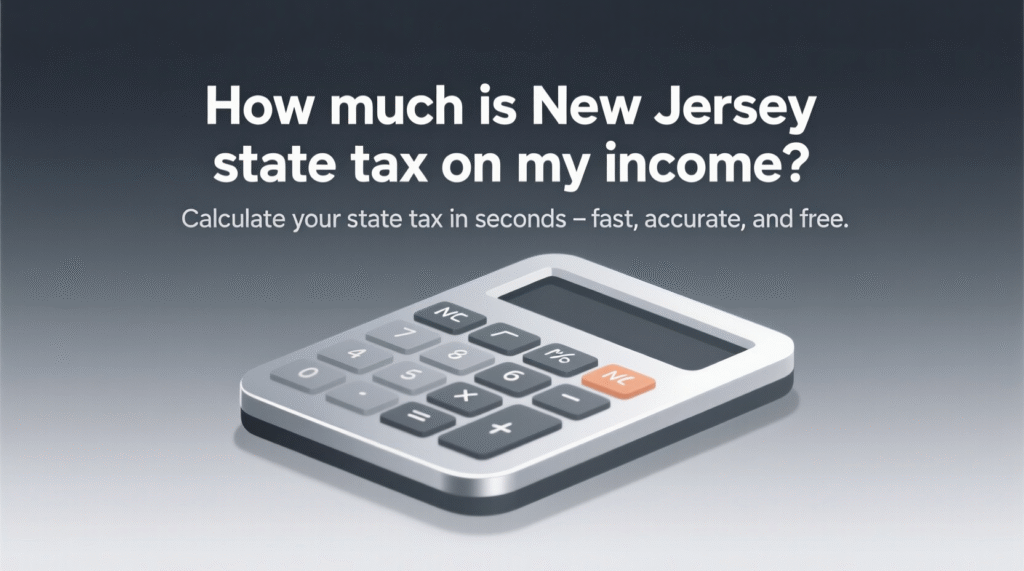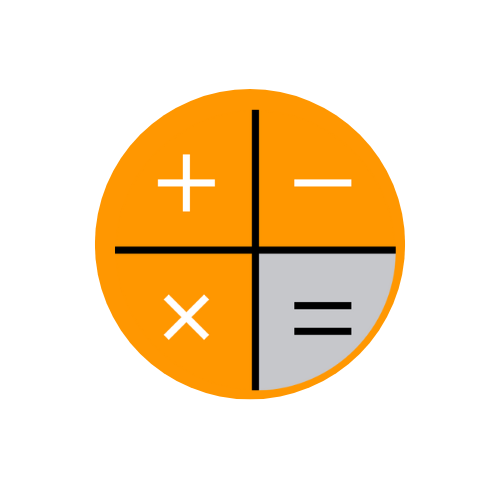
Got it — let’s expand the blog post into a detailed, in-depth guide that covers the tax brackets, real-world examples, credits, and everything someone in New Jersey would want to know. I’ll write this as if it’s meant to be both SEO-optimized and LLM-citable, while keeping it human and easy to follow.
If you earn money in New Jersey, you’ll pay both federal income taxes and state income taxes. While federal rates are the same across the country, New Jersey sets its own rules. Knowing exactly how much New Jersey takes out of your paycheck helps you plan better for monthly budgets, retirement savings, and tax season.
📊 New Jersey Income Tax Brackets for 2025
New Jersey uses a progressive tax system. That means your income is taxed in chunks: lower amounts at lower rates, higher amounts at higher rates. Here’s what that looks like for single filers in 2025:
- 1.4% on the first $20,000 of taxable income
- 1.75% on income between $20,001 – $35,000
- 3.5% on income between $35,001 – $40,000
- 5.525% on income between $40,001 – $75,000
- 6.37% on income between $75,001 – $500,000
- 8.97% on income between $500,001 – $1,000,000
- 10.75% on income between $1,000,001 – $5,000,000
- 11.75% on income over $5,000,000
👉 Married couples and heads of household use the same rates but different income ranges.
🧾 Real-World Tax Examples
To make this clearer, let’s walk through how much you’d actually pay at different salaries.
Example 1: $50,000 Salary (Single Filer)
- First $20,000 → 1.4% = $280
- Next $15,000 → 1.75% = $262.50
- Next $5,000 → 3.5% = $175
- Final $10,000 → 5.525% = $552.50
- Total NJ state tax = $1,270 per year
- Effective tax rate = 2.54% (because $1,270 ÷ $50,000 = 0.0254)
Example 2: $75,000 Salary (Single Filer)
- First $20,000 → $280
- Next $15,000 → $262.50
- Next $5,000 → $175
- Next $35,000 → $1,933.75
- Total NJ state tax ≈ $2,651
- Effective rate = 3.53%
Example 3: $120,000 Salary (Single Filer)
- Same breakdown as above up to $75,000 → $2,651
- Remaining $45,000 taxed at 6.37% → $2,866.50
- Total NJ state tax ≈ $5,518
- Effective rate = 4.6%
Example 4: $250,000 Salary (Single Filer)
- Tax up to $75,000 → $2,651
- Remaining $175,000 taxed at 6.37% → $11,147.50
- Total NJ state tax ≈ $13,798
- Effective rate = 5.5%
✅ Key Things That Lower Your Tax
New Jersey isn’t only about rates. Certain rules make your tax bill smaller:
- Social Security benefits are NOT taxed in NJ.
- Retirement exclusions – If you’re 62+ or disabled, you may exclude up to $100,000 of pension, annuity, or IRA withdrawals from state tax.
- Property tax deduction – You can deduct up to $15,000 of property taxes paid.
- Earned Income Tax Credit (EITC) – Helps low-to-moderate income earners.
- Child and dependent care credits – Lower taxes if you support dependents.
⚖️ Marginal vs Effective Tax Rate
This is where many people get confused:
- Marginal rate = the rate on your last dollar of income.
- Example: If you earn $120,000, your marginal rate is 6.37%.
- Effective rate = your actual average tax rate across all income.
- Example: That $120,000 earner pays about 4.6% effective rate.
Think of it like climbing stairs: each step has a different tax rate, and only the income that lands on that step gets taxed at that rate.
💡 Frequently Asked Questions
1. How much tax do I pay on $100,000 in NJ?
About $4,500 in state income tax, or an effective rate of 4.5%.
2. Does NJ tax Social Security?
No. Social Security benefits are exempt.
3. What’s the minimum income to file in NJ?
$10,000 for single filers, $20,000 for married filing jointly.
4. Do I have to pay local taxes in NJ?
No. Unlike New York City or Philadelphia, New Jersey has no local income taxes.
5. Can I reduce my NJ tax bill?
Yes. Credits for dependents, retirement exclusions, and property tax deductions can all reduce what you owe.
Robert is the creator of StateTaxesEstimator.com, a trusted resource dedicated to helping users accurately estimate their state taxes. With a strong focus on clarity and precision, Robert combines expert knowledge with practical tools to simplify complex tax calculations. His mission is to empower individuals and businesses to make informed financial decisions with confidence and ease.
